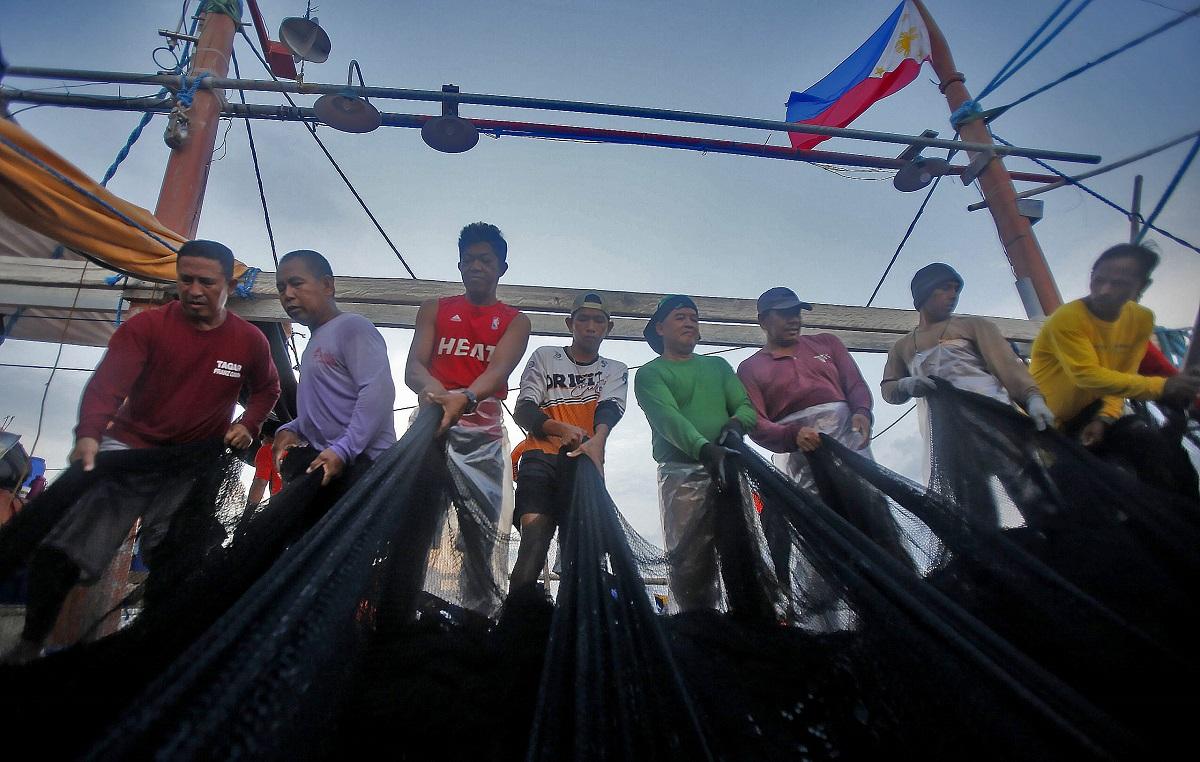PH protests unilateral Chinese fishing ban in South China Sea

The Philippines protested on Monday China's unilateral fishing ban in the South China Sea, saying it violates international law and undermines the country's sovereignty and maritime rights.
Manila said it does not recognize China’s fishing moratorium from May 1 to September 16 as it includes Manila's maritime zones over which the Philippines has sovereignty, sovereign rights, and jurisdiction.
"The Philippines called on China to cease and desist from the conduct of illegal actions that violates the Philippines' sovereignty, sovereign rights, and jurisdiction in its maritime zones," a Department of Foreign Affairs statement said.
It also urged China to "comply with its obligations under international law, particularly the 1982 UNCLOS and the final and binding 2016 Arbitral Award; and adhere to its commitments under the 2002 Declaration on the Conduct of Parties in the South China Sea."
China's fishing ban came a week after it announced that it will detain foreigners intruding into areas it claims in the South China Sea.
Manila has opposed China's new policy, with Defense Secretary Gilberto Teodoro calling it a "provocation."
Citing Paragraph 716 2016 Arbitral Award on the South China Sea, which Manila says is "final and binding," states that any Chinese fishing moratorium in the South China Sea that includes the Philippines’ exclusive economic zone is illegal, the DFA said.
It also said that China breached Article 56 of the 1982 United Nations Convention on the Law of the Sea (UNCLOS) "with respect to the Philippines' sovereign rights over the living resources of its exclusive economic zone."
Chinese officials in Manila have yet to respond to a request for comment.
'Raises tensions'
The self-imposed fishing moratorium, the DFA said, "raises tensions in the West Philippine Sea and the South China Sea, and directly contravenes the understanding between President Ferdinand R. Marcos Jr. and Chinese President Xi Jinping to manage differences through diplomacy and dialogue and to de-escalate the situation at sea."
China has rejected the 2016 international tribunal ruling and maintained indisputable and historic rights over 90 percent of the South China Sea – a major shipping route and said to be harboring rich oil and gas reserves.
Vietnam, Malaysia, Brunei and Taiwan also claims in part or in whole the resource-rich waters.
Parts of the waters within the Philippines’ exclusive economic zone have been renamed by Manila as West Philippine Sea.
The diplomatic row between Manila and Beijing have escalated following several tense confrontations between Chinese and Philippine coast guard ships since last year at Ayungin Shoal, also known by its international name Second Thomas Shoal, and in Bajo de Masinloc or Scarborough Shoal or Panatag Shoal. Both South China Sea features are within the Philippine exclusive economic zone.
China’s increasingly aggressive actions, such as harassment of Filipino coast guard vessels and fishermen, in Philippine territories have angered Manila.
China has repeatedly assaulted the Philippine Coast Guard and supply boats with water cannons, military grade lasers and dangerous blockings in high seas, causing severe damage to vessels and injuries to people. — RSJ, GMA Integrated News




